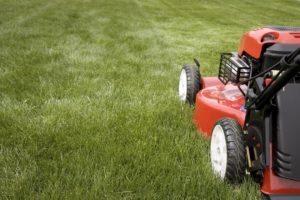
Learn the best methods for recycling grass clippings back onto your lawn.
Grass clippings are a valuable resource that can be recycled back into your lawn to promote healthier growth and reduce waste. At Scientific Plant Service, we encourage homeowners to take advantage of this natural fertilizer. Here are some tips to help you make the most of your grass clippings.
Sharpen Mower Blades
Maintaining sharp mower blades is crucial for effective recycling of grass clippings. Sharp blades cut grass cleanly, reducing stress on your lawn and ensuring that clippings are small and evenly distributed. On the other hand, dull blades can tear the grass, leading to jagged edges that are more susceptible to disease and slow to decompose.
Let Grass Clippings Settle
After mowing, allow the grass clippings to settle into the lawn. This process helps them break down more quickly, returning essential nutrients like nitrogen to the soil. Avoid raking up clippings immediately after mowing, as this disrupts the natural decomposition process. Over time, this can reduce the need for additional fertilizers.
Water Thoroughly But Infrequently
Watering your lawn thoroughly but less frequently helps promote deeper root growth, which is required for a healthy lawn. Deep watering encourages roots to grow downward, making the grass more drought-resistant. When combined with the natural mulch provided by grass clippings, this can create a stronger, more resilient lawn that requires less maintenance.
Use a Mulching Mower
A mulching mower is designed to cut grass clippings into smaller pieces, allowing them to decompose more quickly and return nutrients to the soil more efficiently. If you don’t already have a mulching mower, consider investing in one or using a mulching blade attachment for your existing mower. This simple upgrade can significantly enhance the benefits of recycling grass clippings.
Avoid Mowing Wet Grass
Mowing wet grass can lead to clumping, which makes it difficult for clippings to settle evenly and decompose properly. Wet clippings can also smother your lawn, leading to issues like mold growth and uneven grass coverage. Always mow when the grass is dry to achieve the best results.
Create a Compost Pile
If you have more grass clippings than your lawn can handle, consider adding them to a compost pile. Grass clippings are rich in nitrogen, making them an excellent addition to your compost. Mix them with brown materials like leaves and twigs to create a balanced compost that can be used to enrich your garden soil.
Avoid Over-Fertilizing
When recycling grass clippings, be mindful of your fertilization schedule. Since clippings naturally return nutrients to the soil, you may need to reduce the amount of fertilizer you apply. Over-fertilizing can lead to nutrient runoff, which can harm local waterways. Adjust your fertilization routine to account for the extra nutrients your recycled clippings provide.
At Scientific Plant Service, we are here to help you achieve a gorgeous and environmentally friendly landscape. For more information, please contact our team of experts.
Scientific Plant Service Is Your Go-To Source In Landscape Healthcare
Scientific Plant Service, located in Baltimore, is a privately owned corporation, chartered in Maryland in 1957 by Frank J. Burke. We started as a full-service Arborists specializing in the care of shade trees and ornamental shrubs, but today we are a Lawn Care company that is a huge part of the community. From aquatic environments and snow management to deer and mole control, SPS has services tailored specifically for your lawn and landscape.
We offer services in Maryland, Washington, DC, and Virginia, including: Harford, Baltimore, Carroll, Frederick, Howard, Anne Arundel, Montgomery, Prince Georges, Talbot, Queen Anne’s, Calvert counties in MD, as well as Loudoun County, Fairfax County, Arlington, Alexandria, and Falls Church in VA. For more information, contact us online, or call us at 410-321-0970. Be sure to follow us on Facebook, Twitter, LinkedIn, Instagram, and Pinterest.

